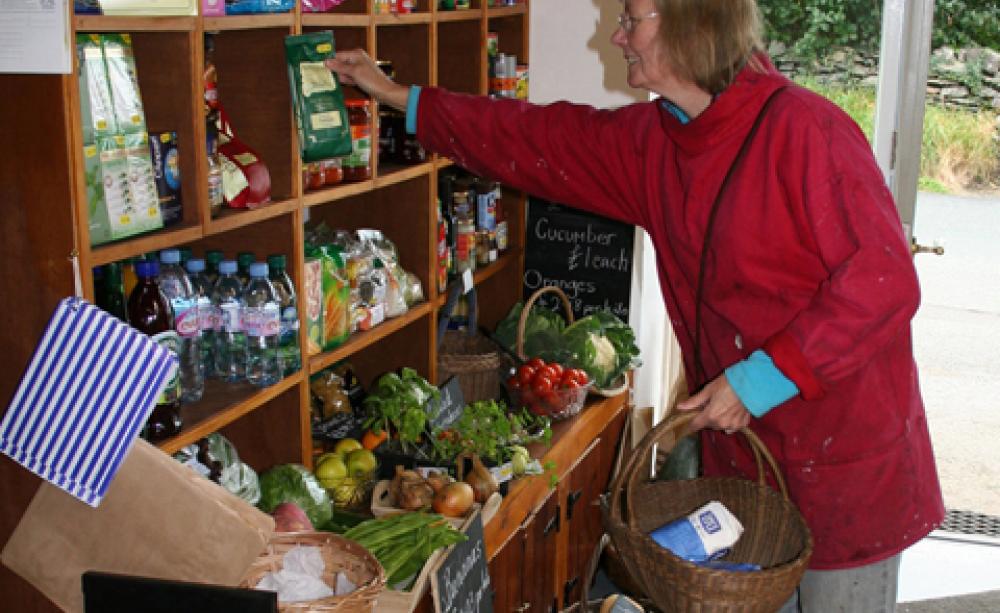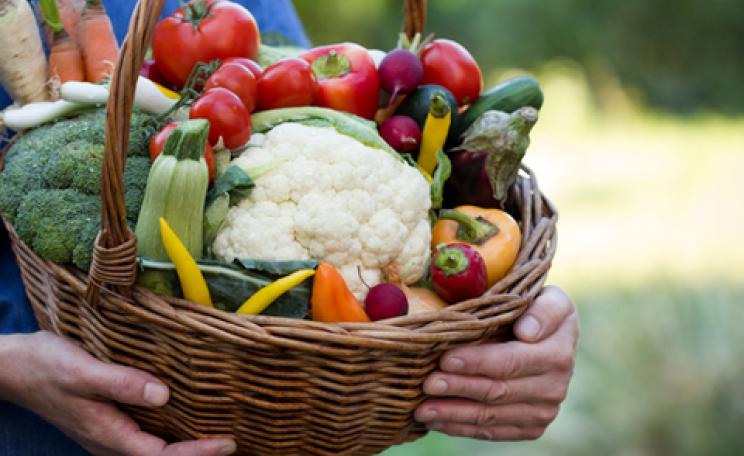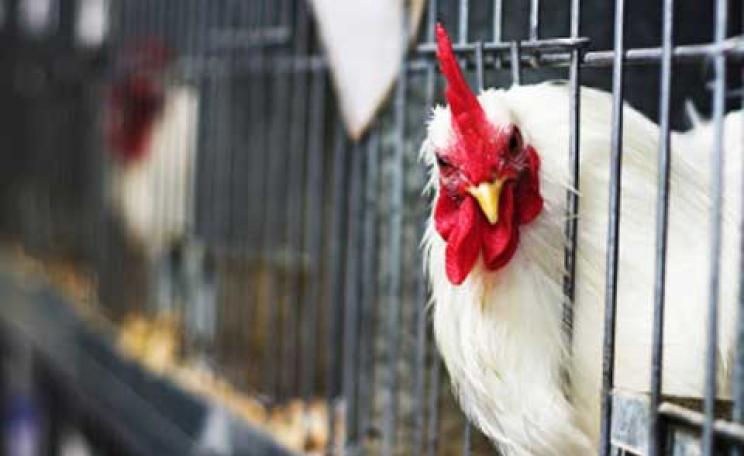Local food can revitalise neighbourhoods and villages, support a thriving farming sector and cut our environmental footprint. But despite almost a third of UK shoppers buying local food, only a couple of percent of food is sold locally. As we enter an age of using more resources than our planet can replenish, buying local food from community food enterprises offers us a ready-made solution that will help us tackle this problem head on. But how do we encourage greater engagement with local food?
Community food enterprises are best-placed to generate the public dividends that local food can offer. Making Local Food Work, a five year programme, funded by the Big Lottery Fund, aims to reconnect land and people through food. It has already helped enterprises like food buying groups, farmers' markets and community shops provide access to local food to over 1.7 million people across England. But with 2011 comes a new challenge; to increase engagement with local food to a wider audience to ensure the sustainable solution to our global problem is as widely accepted as possible.
Since the 1950s, psychologists and economists have come up with a huge spread of models and theories to explain the links between attitudes, values, beliefs and behaviour. Interest in this field exploded in the 1970s, with behavioural change theories being applied to address health problems linked to smoking, drinking and drug addiction. Popularised by books like Nudge and The Tipping Point, they have found an eager audience among social marketers, policy makers and campaigners. There is no shortage of advice on how to change people's behaviour to support their own wellbeing and the wider public interest.
Social marketing
But, until now, this advice has been reserved for government and big business. Working closely with the Food Ethics Council's Dr Tom MacMillan and Dr Ian Fitzpatrick, we have created a practical toolkit that applies behaviour change techniques to community food enterprises for the very first time.
Our challenge has been to work out why, despite 9 out of 10 consumers professing to wanting to buy more local food, they are not doing so. We propose that in order to break down these perceived barriers, we have to make local food easy, make it normal and make it personal.
The most immediate barriers to changing behaviour are about access, when the external environment makes it difficult for people to act in a certain way. Tackling this means making local food easy; making it more desirable - cheaper and easier to achieve. By encouraging community food enterprises to adopt the techniques used by big businesses like supermarkets to encourage shoppers to buy local food, they can increase participation in a more sustainable food chain. Offering money back guarantees, reward schemes or even just increasing signage on local food products will make it easier for more and more people to engage.
But it's not just about making it easier. Social and cultural norms are behavioural rules which a society or community uses to tell the difference between appropriate and inappropriate values, beliefs, attitudes and behaviours. People not only do things prompted by observing the behaviour of others around them, but are encouraged to continue doing things if they feel that others approve of their behaviour. Telling people about existing local food customers by having a visual prompt like a thermometer or rewarding your hundredth customer is a great way of making buying local food a normal behaviour.
A third strand of thinking on behavioural change is that one size doesn't fit all. Understanding how people see the world differently can help engage them; using messages that promote a positive feeling towards a targeted behaviour, rather than a fear or avoidance of an unfavourable behaviour, is more likely to engage people.
Behavioural change campaigns use a variety of approaches to target different aspects of human psychology, and the physical and social environment. Engaging with people on multiple fronts at the same time increases visibility and access, which both help to encourage new habits and behaviours. Making Local Food Work is working to help community food enterprises to do this, but there is also a need for government to do its bit in providing a fertile environment in which community food enterprises can thrive. We all have a responsibility to do what we can to promote all the benefits local food can offer to a more sustainable future for food.
Jennifer Smith, Head of Programme Management, Making Local Food Work
| READ MORE... | |
 |
HOW TO MAKE A DIFFERENCE Saving and rebuilding community shops Mourning the loss of your beloved local shop? With a little help from the Community Shops Network, you can set up and run your own shop and post office... |
 |
HOW TO MAKE A DIFFERENCE CASE STUDY: supporting local food A tireless crusader for rural revitalisation, Kate Eshelby meets the septuagenarian who beat Tesco out of town and is now at the heart of Suffolk’s local food revival |
 |
HOW TO MAKE A DIFFERENCE Reclaiming a derelict site to create a community garden The story of how a group of dissatisfied residents pulled together, got funding, and created a blooming community garden where the work, and the rewards, are shared |
 |
HOW TO MAKE A DIFFERENCE CASE STUDY: growing fruit and veg in the city A host of communal vegetable gardens are springing up in the concrete heart of East London. Ben Willis meets the woman coaxing life from the urban jungle |
 |
HOW TO MAKE A DIFFERENCE Persuading your local station to plant fruit trees Armed with just a good idea and big dose of enthusiasm you can transform a bleak area into a mini orchard. Plus, the best way to approach a station manager... |





